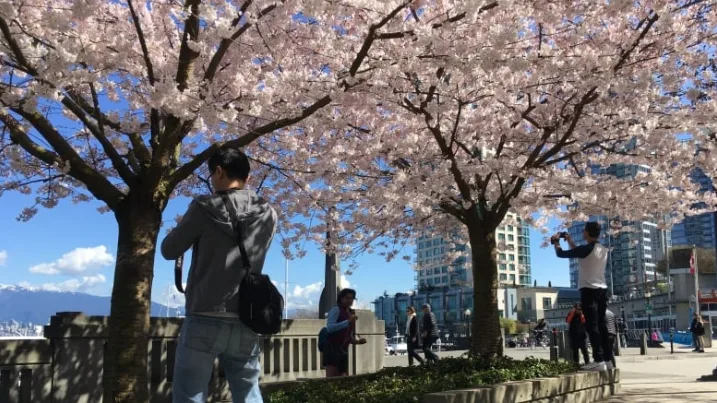
Vancouver watches effect of climate change on cherry trees
The City of Vancouver has no plans to stop planting cherry trees even though there's concern the iconic trees don't fare well in the warmer and drier weather conditions B.C. has faced in recent years.
The cherry trees, not native to the South Coast, are the runaway stars of spring with their pink blossoms.
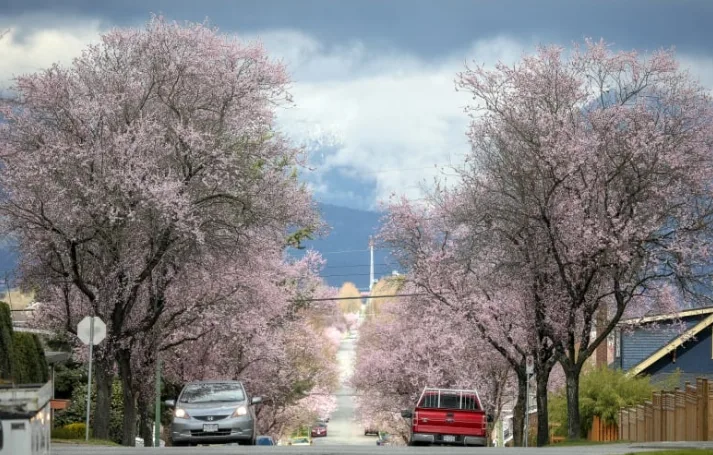
(Plum blossoms bloom on a street in Vancouver's Grandview-Woodland neighbourhood on March 26, 2019. Evan Mitsui/CBC)
The City of Victoria angered some residents after it proposed replacing cherry trees when they die in favour of native species, which may be better able to cope with the effects of climate change.
SEE IT: Cherry blossoms bloom in BC while the rest of Canada freezes
But councillors eventually backed off the plan and are now looking at keeping cherry trees as part of the city's landscape.
Amit Gandha, the supervisor of urban forestry for the City of Vancouver says there are around 20,000 cherry trees — including 20 different varieties — planted along roads or in parks in Vancouver.
The trees — native to China, Japan, Korea and India — and their blossoms are an obsession for some people, who try to locate and view all the different varieties.
"So it's almost a bit of like an Easter hunt for cherry blossoms," Gandha said.
"It's quite nice."
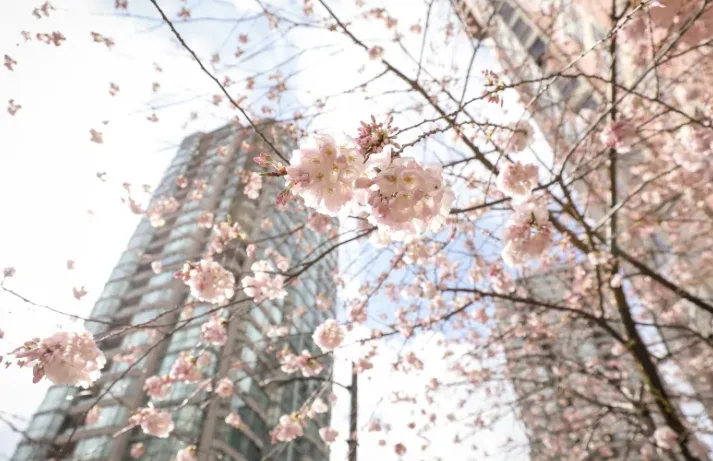
(Japanese cherry trees blossom on Hamilton, St., in Vancouver, on March 26, 2019. Evan Mitsui/CBC)
David Tracey, a tree expert who wrote the Vancouver Tree Book, says cherry trees are susceptible to disease because they thrive in colder winters — not our mild and wet climate. As well, they don't tolerate drought well and don't like to have their roots or branches cramped in dense urban environments,
"But they do have a place in an urban forest that is well designed," he said.
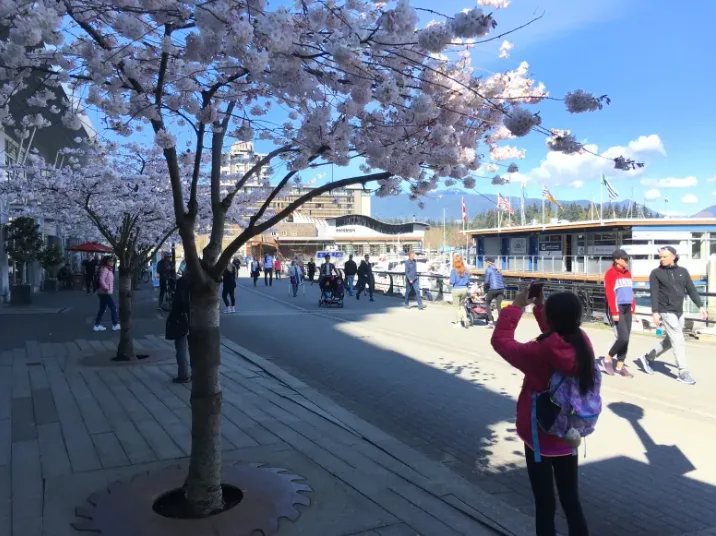
(A girl snaps a photo of a cherry tree in Vancouver full of blossoms on Sunday, March 31, 2019. Chad Pawson/CBC)
Gandha said Vancouver's plan with cherry trees is to replace those that die, or plant new ones in locations where they can be expected to do well.
'DOING FINE RIGHT NOW'
"They're doing fine right now, so we're not too overly concerned but we'll continue to monitor them, but [they're] no different than other species that we have in the city as well," he said.
Part of the challenge is to determine what trees, or variety of species, will thrive in Vancouver as construction and development reduces green space, and climate change alters the conditions trees exist in.
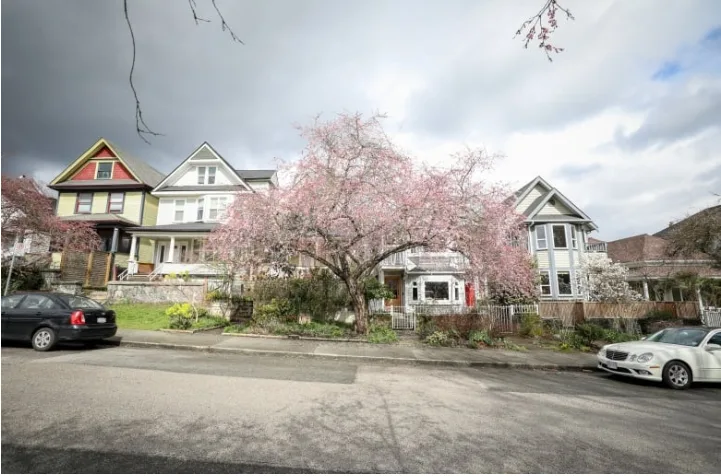
(A sour cherry tree blooms on East Pender St., in Vancouver, on March 26, 2019. Evan Mitsui/CBC)
Ian MacLachlan, an expert in forest genetics and climate with Diamondhead Consulting, helps cities like Vancouver make urban forests resilient for the future.
MacLachlan,said many cities favour native species because they are proven to grow well, provide habitat for animals, insects and other plants. They also provide a strong cultural connection to the history of a place.
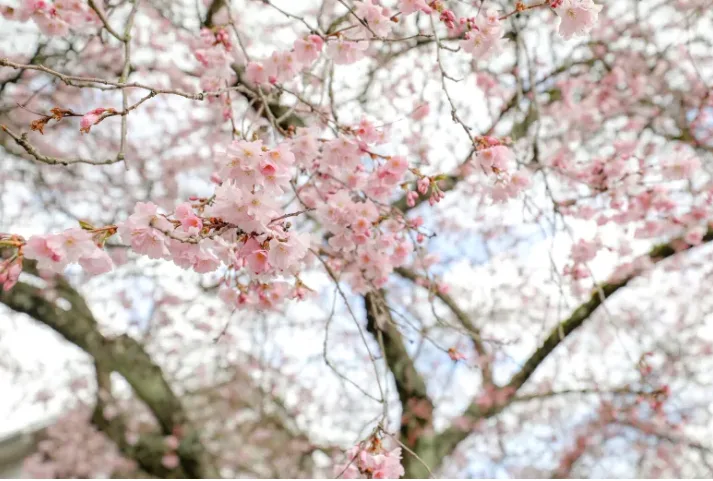
(A wild Himalayan cherry tree, also called sour cherry, blooms in the Strathcona neighbourhood of Vancouver on March 26, 2019. Evan Mitsui/CBC)
The trick with native species, he says, is to search for varieties that exist in other regions in hotter or drier conditions and plant them here so that they are better able to cope with future conditions.
Gandha says it will be similar for cherry trees in Vancouver as some of the 20 different varieties in the city may do better with climate change than others.
This article was originally posted on CBC.ca and written by Chad Pawson






